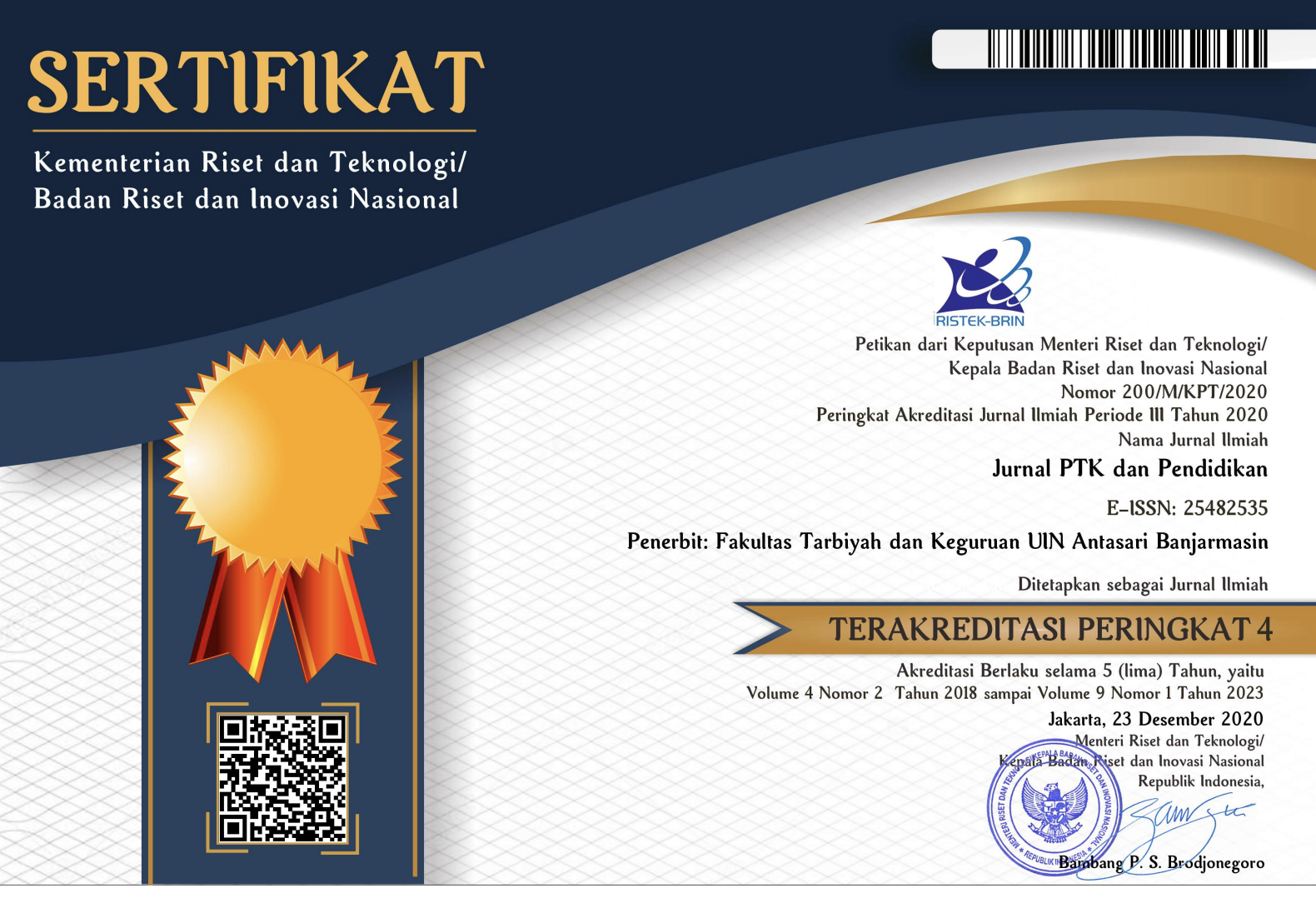Meningkatkan Hasil Belajar dalam Mata Pelajaran Akidah dan Akhlak dengan Menggunakan Model Student Teams Achievement Division (STAD)
DOI:
https://doi.org/10.18592/ptk.v4i2.2301Abstract
Tingkat efektivitas dan hasil belajar siswa XI IPS 1 pada MAN 1 Banjarmasin pembelajaran akidah akhlak dengan menggunakan model pembelajaran kooperatif tipe Student Teams Achievement Divisions (STAD) tahun ajaran 2016/2017. Pembelajaran dengan menerapkan model pembelajaran kooperatif tipe Student Teams Achievement Divisions (STAD) sangat efektif sehingga dapat meningkatkan hasil belajar akidah akhlak siswa.References
Agus Suprijono. 2009. Cooperative Learning Teori & Aplikasi Paikem. Surabaya. Pustaka Pelajar
Anas Sudjono. 2008. Pengantar Statistik Pendidikan Jakarta: PT. Raja Grafindo Persada.
Nana Sudjana. 2008. Penelitian Hasil Proses Belajar Mengajar. Bandung: PT Remaja Rosdakarya.
Martinis Yamin. 2007. Sertifikasi Profesi Keguruan di Indonesia. Jakarta: Gaung Persada Press.
Paulina Pannen. 2001. Konstrutivisme dalam Pembelajaran. Jakarta: Universitas Terbuka.
Robert E. Slavin. 2005. Cooperative Learning: Teori, Riset dan Prakti. Penerjemah: Nurulita Yusron. Bandung: Nusa Media.
Robert E. Slavin. 2008. Cooperatif Learning, Teori, Riset dan Praktik. Bandung: Nusa Media.
Suharsimi Arikunto. 2006. Prosedur Penelitian Suatu Pendidikan Praktek. Jakarta: PT Rineka Cipta. revisi VI.
Published
How to Cite
Issue
Section
License
- The right to publication of all journal material published on the Jurnal PTK dan Pendidikan website is held by the editorial board with the author's knowledge (moral rights remain the property of the author).
- The formal legal provisions for access to digital articles of this electronic journal are subject to the terms of the Creative Commons CC BY 4.0 DEED Attribution International (CC BY) license. This license enables reusers to distribute, remix, adapt, and build upon the material in any medium or format, so long as attribution is given to the creator. The license allows for commercial use.
- Printed and electronic published manuscripts are open access for educational, research and library purposes. In addition to these objectives, the editorial board shall not be liable for violations of copyright law.






